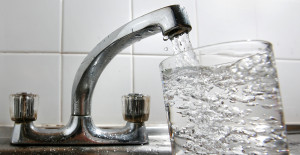Pathogens being pumped throughout a city into cups, food and showers make water system outbreaks scary in scope and outcome. In 1993 an estimated 400,000+ people in Milwaukee had cryptosporidiosis after oocysts made it through the city’s water treatment filtration system. In 2000, seven deaths and 2,300 illnesses were linked to a negligently-managed water system in Walkerton, Ontario (that’s in Canada).
Winnipeg, Manitoba (that’s also in Canada) had a boil water advisory for a couple of days last month that was blamed on a set of samples that falsely showed the water was positive for E. coli. Canadian food micro guru Rick Holley said a couple of weeks ago questioned the water folk’s explanation saying,
“I still had concerns at that time and still do that the false positives might not be scientifically discredited,” said Holley. “It’s all too easy to continue testing until you get the results you want and any results you don’t want you discard as being false. That’s inappropriate.”
Holley said the only way to be sure Winnipeg water is safe is to understand what caused the positive results earlier this week.
“Why were those six samples positive? There has to be a reason why and that has to be established,” said Holley.
According to Global News, it sounds like the Manitoba Government agrees with Rick.
The Manitoba government has ordered an investigation into the susceptibility of Winnipeg’s drinking water after a false E. coli result prompted a boil-water advisory last month for the capital’s 700,000 residents.
City staff say they are confident the water system was not contaminated with bacteria, but the waste and water director says the province has ordered a further assessment.
“It’s a vulnerability assessment,” Diane Sacher told a city council committee Wednesday. “It’s to look at whether our system is vulnerable to possible contamination.”
The report is due at the end of April, Sacher said. The city is also waiting on an independent audit of how water samples are taken and analyzed so as to be sure last month’s results were due to a lab or sampling error.
The province has also amended the city’s licence so water samples are no longer all collected on the same day, but rather spread over a week, she added. It has also requested the city come up with a better plan to notify potentially vulnerable people rather than relying on the media.
